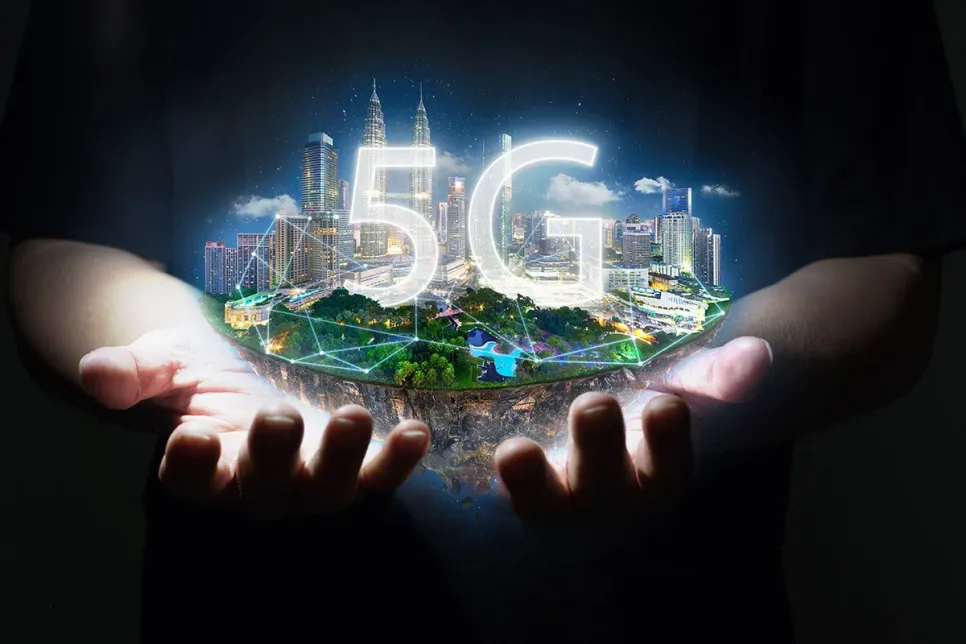LED Video Display Shipments Grew 8.3 Percent in 3Q25
Global LED video display shipments increased by 8.3% year-over-year in the third quarter of 2025, according to Omdia. It was accompanied by a 6.9% increase in revenue.

Productivity and efficiency gains enabled by 5G’s application will drive business, skills and service change worth US$1.3 trillion to global GDP by 2030, according to PwC. In its latest study, PwC quantifies, for the first time, the economic impact of new and existing uses of 5G in utilities, health and social care, consumer, media, and financial services across eight economies with advanced rollout: Australia, China, Germany, India, Japan, South Korea, USA and the United Kingdom (UK).
More than a faster version of mobile connectivity on 4G, 5G’s speed, reliability, reduced energy usage and massive connectivity will be transformative for businesses and wider society, enabling ubiquitous access to super fast broadband. Used in combination with investments in AI and IoT, 5G can be used as a platform to enable business and society to realise the full benefits of emerging technology advances. Economic gains are projected across all economies assessed in the study, as 5G offers the potential to rethink business models, skills, products and services, with the gains accelerating beginning in 2025 as 5G-enabled applications become more widespread.
Based on the study, the USA ($484 billion), China ($220 billion) and Japan ($76 billion) will experience the largest uplift as a result of 5G technology applications, due to the size of their economies and strong modern industrial production sectors. At a regional level, Europe, Middle East & Africa (EMEA) is expected to benefit the most from manufacturing applications of 5G, due to the size of the manufacturing sectors. It demonstrates the potential for regional competitive advantage through approaches to the adoption and regulation of the technology.
“These numbers quantify impact, but perhaps more important, our study reflects the value of 5G - new levels of connectivity and collaboration mean companies will be able to see, do and achieve more. It will open up new opportunities for growth and change as organisations rethink and reconfigure the way they operate in the post-pandemic world. With the pandemic accelerating digitalisation across all sectors, 5G will act as a further catalyst. It will emerge in this decade as a fundamental piece of our societal infrastructure and as a platform for driving the competitiveness of national economies, new business models, skills and industries,“ said Wilson Chow, Global Technology, Media and Telecommunications Industry Leader at PwC China.
Over half the global economic impact ($530 billion) will be driven by the transformation of health and social care experience for patients, providers and medical staff within the next ten years. While the acceleration of telemedicine during the COVID-19 pandemic provided a glimpse of the future of healthcare, remote care is just one area in which 5G can enable both better health outcomes and cost savings. 5G’s applications include remote monitoring and consultations, real time in-hospital data sharing, improved doctor-patient communications and automation in hospitals to reduce health care costs.
At a sector level, impacts vary for individual economies. The USA and Australia are projected to gain the most from financial services applications: India from smart utilities; China and Germany in manufacturing. Other industries analysed in the study show the significant potential of new and existing applications over the next decade, driving changes in skills, jobs, consumer products and regulation. The study highlights that the reach of 5G’s technology potential will require businesses and government to consider new approaches to regulatory and consumer engagement, focusing on how the technology is used.